
In McAllen, Texas, outside the only abortion clinic, a long-standing debate continues. Volunteers escort patients, while others pray and urge them not to enter.
More than 40 years ago, Rosie Jimenez died across the street from that very clinic. Her story still echoes in the fight for reproductive rights.
Rosie became a symbol for abortion rights activists after her death in 1977. She died from an infection after seeking an unsafe abortion due to financial constraints.
At 27, she was unable to afford a doctor and turned to a midwife who wasn’t licensed to perform abortions. Days later, she developed a fatal infection.
Her death came after the passage of the Hyde Amendment, which prevented Medicaid from covering abortion costs. It left low-income women with limited or unsafe options.
For decades, her name has been mentioned in rallies, vigils, and protests across the country. Her story remains a reminder of the consequences of abortion restrictions.
A rally was recently held near the McAllen abortion clinic. Activists gathered just blocks away from where Rosie likely received medical care before her death.
The building where she died was demolished in the 1990s to make way for city hall. But her story remains deeply tied to McAllen’s history.
The Rio Grande Valley, where McAllen is located, is a predominantly Mexican American region with high poverty rates. Many here face barriers to reproductive healthcare.
A mural on the clinic’s wall features brown-skinned women supporting each other in a lush green field. Above them, words like “justice” and “dignity” are painted.
The clinic serves patients from McAllen and counties south of San Antonio. Many are undocumented women, and a procedure here costs up to $800.
The cost is higher than in many other cities. Women also face additional expenses like lost wages, travel costs, and childcare, making access even harder.
Recently, a federal appeals court reinstated Texas’ six-week abortion ban after a judge had blocked it. Legal battles over abortion rights continue to escalate.
Despite ongoing legal fights, the pain of Rosie’s death lingers. Her daughter, Monique Jimenez, has lived with the aftermath of that loss all her life.
Monique was four when her mother died. Her memories of Rosie are sparse, but the loss altered the course of her life in ways she couldn’t understand as a child.
At 18, Monique started college, attending the same university her mother once did. That’s when her aunt decided she needed to know the truth.
“You need to know what happened to your mother,” her aunt said. She handed Monique a book with Rosie’s face on the cover.
That’s how Monique learned her mother had died from an unsafe abortion. Until then, no one had ever told her the full story.
Since then, Monique has spent years piecing together Rosie’s life through stories from family members and her own research.
She wants people to remember more than just how her mother died. She wants them to know who she was in life.
Rosie Jimenez was born into a large Mexican American family in McAllen. She had 11 siblings, though some died young, including her twin sister.
Her parents were migrant workers. Eventually, her mother’s cooking skills helped the family open a small Mexican restaurant in town.
Rosie was known for her kind heart and love for dancing. She spent summer days at the beach and enjoyed dressing up in colorful outfits.
Though she didn’t finish high school, she earned her GED and became the only one in her family to attend college.
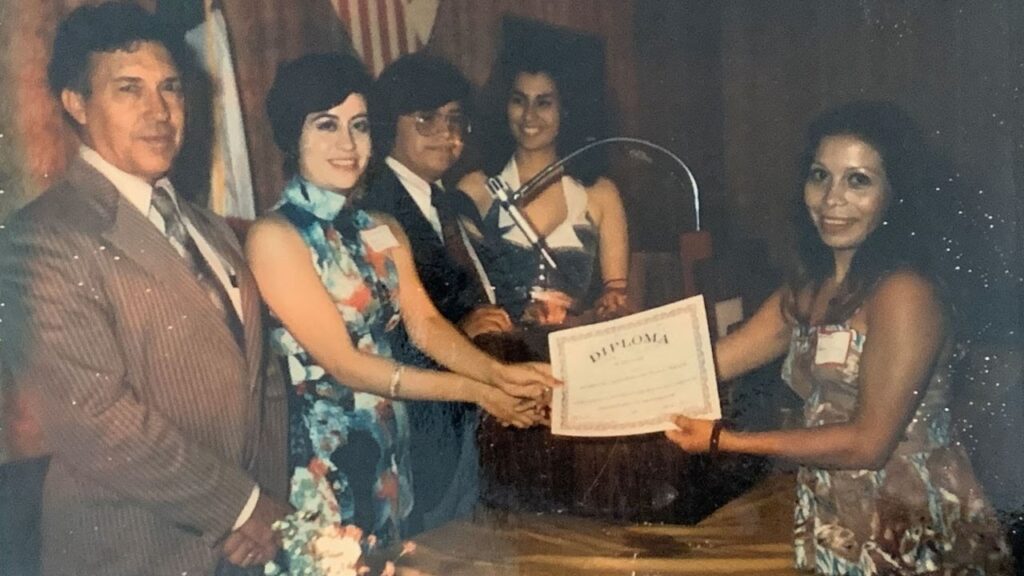
She studied at Pan American University and dreamed of becoming a special education teacher. But she never made it past her sophomore year.
Rosie became a single mother in her twenties. Despite hardships, photos of her baby shower and Monique’s first birthdays show her smiling brightly.

In September 1977, unable to afford a legal abortion, Rosie turned to an unlicensed midwife. Soon after, she developed complications.
She bled for days but hesitated to seek medical help. When she finally did, she didn’t immediately tell doctors about the abortion.
Perhaps she was scared or ashamed. In 1977, attitudes toward single mothers were different. Judgment was common, and abortion was highly stigmatized.
Her condition worsened. The infection spread through her body, causing her organs to fail. Her family rushed to her side.
By then, she was intubated and too weak to speak. Her siblings said she wrote one word on a piece of paper—“Monique.”
They reassured her: “Don’t worry, Rosie. We’ll take care of Monique.” Days later, Rosie passed away. She was buried in McAllen.
For years, Monique didn’t know the details. Her grandparents raised her but never spoke about Rosie’s death.
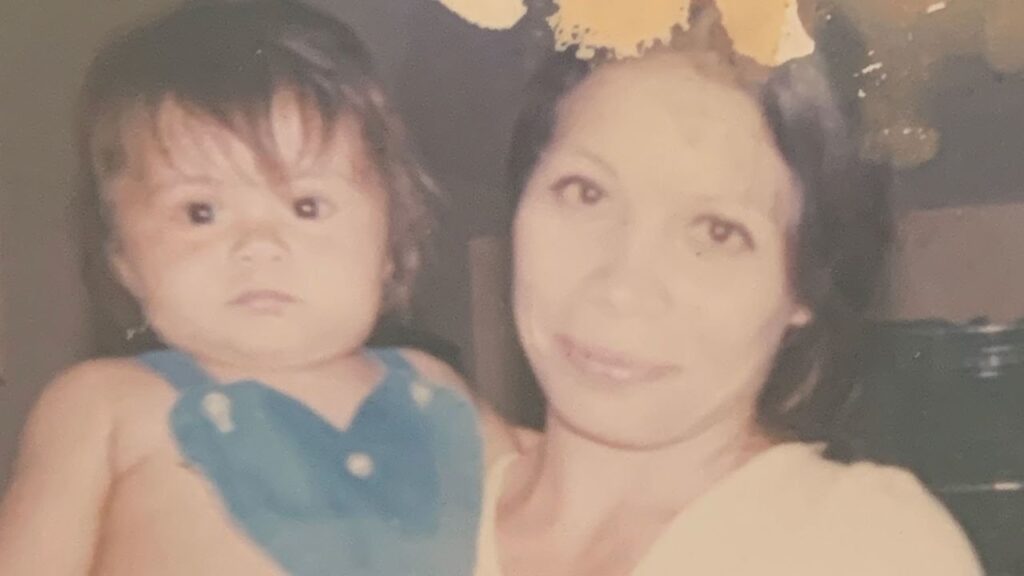
She grew up surrounded by cousins and spent time at the family restaurant, where her grandmother gave her tortillas with jelly as a snack.
Her grandparents never talked about sex or abortion. By the time Monique learned the truth, they were gone, leaving many unanswered questions.
“What was she thinking? Was she afraid? I’ll never know,” Monique says. All she has are the stories shared by relatives.
Melissa Arjona, a reproductive rights activist, first learned about Rosie’s story eight years ago. She was shocked that this happened in her own hometown.
“She was right here,” Arjona says. “If she had access to safe care, she would still be alive today.”
Her organization, South Texans for Reproductive Justice, now visits Rosie’s grave, organizing events to honor her and clean her headstone.
For years, McAllen has been a flashpoint for abortion rights debates. Catholic influences and cultural stigma have fueled strong opposition to abortion.
Recently, activists held a 20-foot-long sign that read “Abortion is healthcare.” Some drivers honked in support. Others shouted insults.
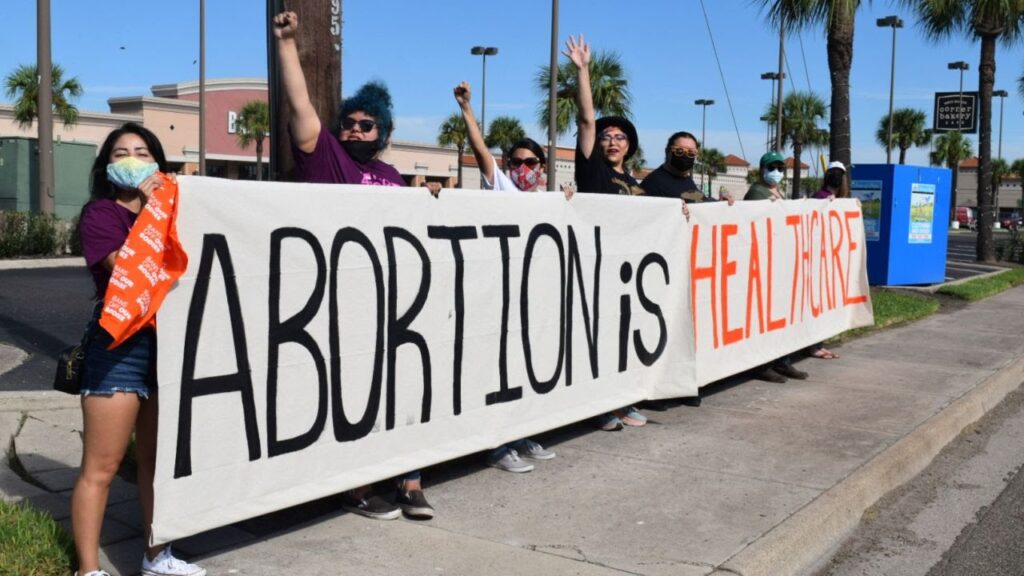
Protesters responded by chanting even louder: “Aborto sí, aborto no, eso lo decido yo” (Abortion yes, abortion no, that’s up to me).
More than four decades after Rosie’s death, the Hyde Amendment remains controversial. It continues to block federal funding for most abortion care.
Recently, Senator Joe Manchin insisted the Hyde Amendment be included in federal spending bills. Meanwhile, some Democrats refuse to vote for any bill that includes it.
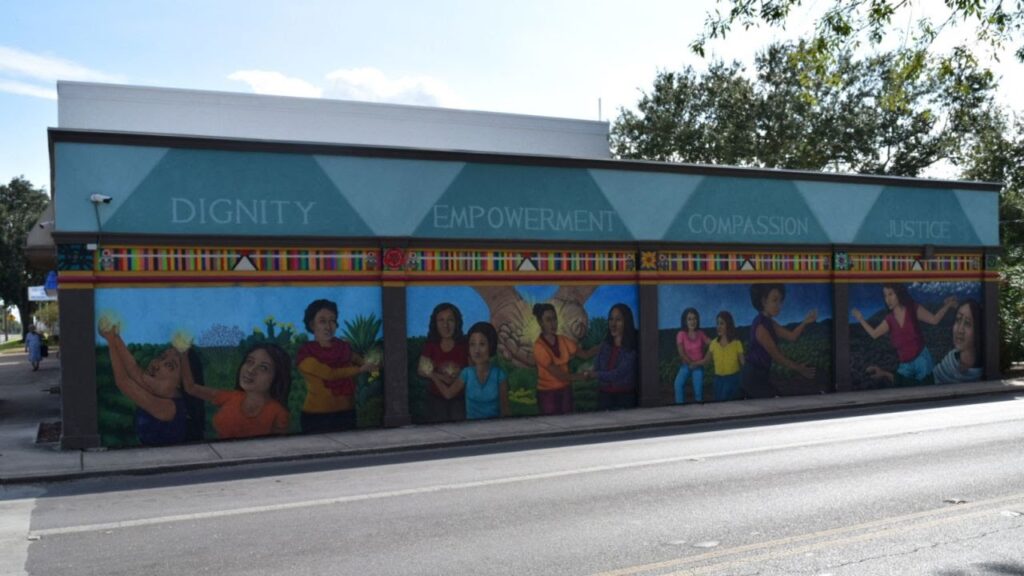
Texas lawmakers introduced “Rosie’s Law” to allow Medicaid and private insurance to cover abortion care, but it has been overshadowed by restrictive state laws.
Ana Rodriguez, a legislative campaign coordinator, says Rosie’s death could have been prevented. “Medicaid should cover abortion,” she says.
Monique is proud that her mother’s story has inspired so many. But she’s frustrated that Texas’ abortion laws have only become more restrictive.
“After 44 years, haven’t we learned?” she asks. “Are we really repeating the same mistakes?”
On the eve of Rosie’s death anniversary, red roses were placed on her grave at La Piedad Cemetery in McAllen.
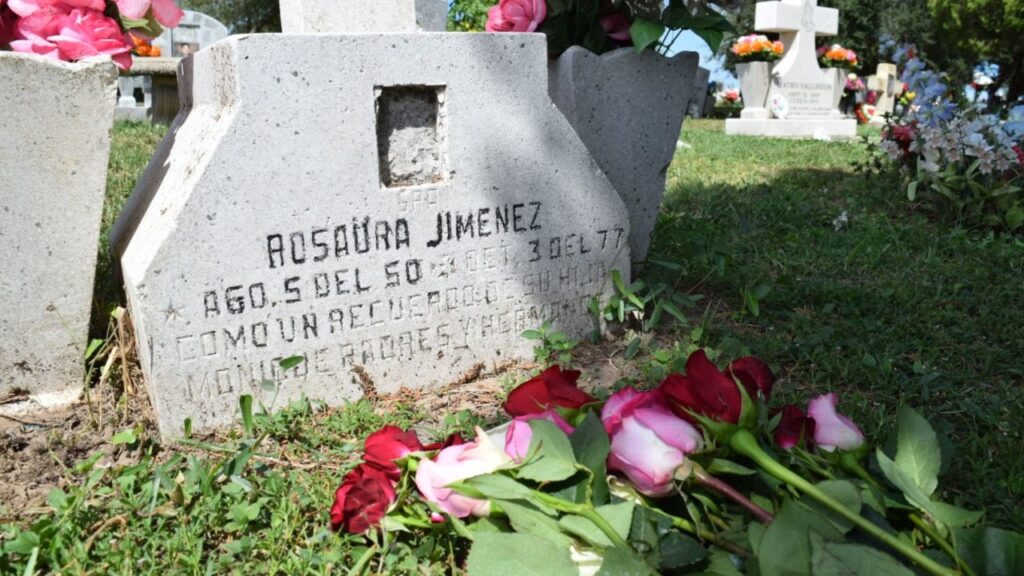
The cemetery, located near the airport, has faced threats from expansion projects. But Rosie’s grave remains untouched, a quiet reminder of the past.
Monique now lives in Houston and has a career in special education—the same path her mother once dreamed of.
She cooks Rosie’s old recipes, like the ground beef and vegetable soup her mother made for her as a child.
Monique also has a five-year-old daughter. One day, she plans to tell her everything about Rosie and the movement she represents.
When the time is right, they’ll attend a reproductive rights protest together. “My daughter will know who her grandmother was,” Monique says.





